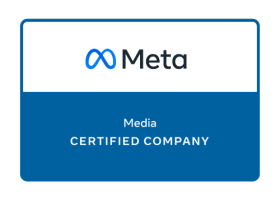Welcome to our guide on JavaScript and its influence on marketing. In this article, we will explore how JavaScript is revolutionising digital strategies in the UK.
Key Takeaways:
- JavaScript is a widely used programming language in digital marketing.
- It allows for real-time changes to web pages, making it essential for creating interactive and dynamic websites.
- In marketing, JavaScript is used for A/B testing, tracking implementation in Google Tag Manager, web page scraping, API integration, and automating reporting in Google Sheets.
- JavaScript is supported by all major browsers and plays a crucial role in enhancing user experiences.
- JavaScript should not be confused with Java, as they are different programming languages.
The Power of JavaScript in Marketing
JavaScript is a versatile scripting language that plays a crucial role in modern marketing strategies, particularly in web development and front-end scripting. As the language of the web, JavaScript allows for real-time changes to web pages, making it invaluable for marketers aiming to create dynamic and interactive user experiences.
One of the key strengths of JavaScript lies in its ability to facilitate A/B testing, a vital technique in marketing to analyse and optimise campaign performance. With JavaScript, marketers can easily implement tracking in Google Tag Manager, enabling them to gather valuable data and insights. Additionally, JavaScript is used for scraping web pages, an essential practice for content research and competitor analysis.
Furthermore, JavaScript enables marketers to access and retrieve data from APIs, empowering them to harness external sources of information and enhance their marketing strategies. Automating reporting in Google Sheets is another powerful application of JavaScript in marketing, enabling marketers to streamline their reporting processes and save time analysing campaign data.
JavaScript is supported by all major browsers, making it an essential component of website design. Its use in front-end development allows for the creation of interactive and dynamic websites, improving user engagement and satisfaction. However, it’s important to note that JavaScript should not be confused with Java, as they are different programming languages. While JavaScript is extensively used in web development, it is not recommended to insert JavaScript into email campaigns.
| Key Features of JavaScript in Marketing |
|---|
| Facilitates A/B testing for campaign optimisation |
| Enables tracking implementation in Google Tag Manager |
| Allows web page scraping for content research |
| Accesses data from APIs for enhanced marketing strategies |
| Automates reporting in Google Sheets for streamlined analysis |
| Supports the creation of interactive and dynamic websites |
Enhancing User Experiences with Interactive Web Pages
One of the key benefits of JavaScript in marketing is its ability to create interactive web pages that engage users through client-side scripting and seamless browser compatibility. JavaScript allows us to add dynamic elements and functionality to a website, making it more visually appealing and interactive. With JavaScript, we can create engaging experiences such as image sliders, interactive forms, real-time content updates, and more.
Client-side scripting, powered by JavaScript, enables the website to respond to user actions without the need to communicate with the server. This means that we can create instant feedback and smooth transitions, providing users with a more satisfying and seamless browsing experience.
Furthermore, JavaScript ensures browser compatibility, allowing websites to function correctly across different devices and browsers. By using JavaScript, we can create interactive web pages that work flawlessly on desktops, laptops, tablets, and smartphones. This versatility is crucial in today’s digital landscape, where users access websites from various devices. With seamless browser compatibility, we can reach a broader audience and provide a consistent user experience.
Overall, JavaScript plays a vital role in enhancing user experiences by enabling the creation of interactive web pages through client-side scripting and ensuring seamless browser compatibility. With its ability to add dynamic elements and functionality, JavaScript empowers marketers to engage users, drive conversions, and deliver a more immersive online experience.
| Key Benefits of JavaScript in Marketing: |
|---|
| 1. Creates interactive web pages |
| 2. Enables client-side scripting |
| 3. Provides seamless browser compatibility |
Leveraging JavaScript for Data Analysis and Reporting
JavaScript empowers marketers to conduct data analysis and reporting more efficiently by employing techniques such as A/B testing, Google Tag Manager integration, web page scraping, API utilisation, and automated reporting in Google Sheets. These powerful tools enable marketers to gain valuable insights, optimise campaigns, and make data-driven decisions.
A/B testing is a crucial technique that allows marketers to compare different versions of a webpage or email campaign to determine which performs better. JavaScript plays a vital role in implementing A/B tests, enabling marketers to easily swap and test different elements on their websites or landing pages, such as headlines, calls to action, or images. By measuring user engagement, conversions, and other key metrics, marketers can make informed decisions to improve their marketing strategies.
Google Tag Manager is another valuable tool that relies on JavaScript to streamline the implementation and management of tracking codes and tags on websites. With Google Tag Manager, marketers can easily track user behaviour, events, conversions, and other valuable data without needing to modify the website’s source code. JavaScript is used to trigger specific actions or events, such as tracking form submissions or button clicks, allowing marketers to gather valuable data for analysis and reporting.
Web page scraping is an essential technique that allows marketers to extract data from web pages for content research, competitor analysis, or market insights. JavaScript is used to navigate and interact with web pages, accessing and extracting specific elements or information. By leveraging web scraping tools and JavaScript, marketers can automate the collection of data, saving time and effort that can be allocated to data analysis and reporting.
| API Utilisation | Automated Reporting in Google Sheets |
|---|---|
| JavaScript enables marketers to leverage APIs (Application Programming Interfaces) to retrieve data from various sources such as social media platforms, advertising platforms, or analytics tools. By integrating APIs into their data analysis workflow, marketers can access real-time data, perform complex calculations, and create customised reports. | With JavaScript and Google Sheets integration, marketers can automate the reporting process by fetching data from multiple sources, performing calculations, and generating visualisations. By utilising JavaScript functions and libraries, marketers can build dynamic reports that update automatically with the latest data, saving time and ensuring accuracy. |
JavaScript is a powerful programming language that empowers marketers to analyse and report data effectively. Whether it’s conducting A/B tests, utilising Google Tag Manager, scraping web pages, leveraging APIs, or automating reporting in Google Sheets, JavaScript plays a vital role in enhancing marketing strategies and driving data-driven decision-making.
Browser Support and Importance in Website Design
JavaScript’s widespread browser support is vital in modern website design as it enables the development of interactive and dynamic websites that captivate users. With JavaScript, we can create engaging user experiences by incorporating features like image carousels, interactive forms, and real-time updates.
One of the great advantages of JavaScript is its compatibility with all major browsers, including Chrome, Firefox, Safari, and Edge. This means that regardless of the browser a user is using, they will be able to fully experience the interactive elements and functionality of a website.
Moreover, JavaScript allows web developers to enhance website interactivity by responding to user actions in real time. For example, we can implement event handling to trigger pop-up messages or notifications when a user clicks a button or submits a form. This creates a more seamless and engaging user experience, keeping visitors on the site for longer periods.
In addition to its compatibility and interactivity, JavaScript also plays a crucial role in web development by enabling the integration of APIs (Application Programming Interfaces) and automating reporting. We can leverage JavaScript to retrieve data from APIs, such as social media platforms or third-party services, and display it dynamically on our website. Furthermore, JavaScript can automate reporting processes by fetching data from various sources, manipulating it, and generating reports directly in tools like Google Sheets.
| Benefits of JavaScript in Website Design | Examples |
|---|---|
| Enhanced user interaction | Interactive forms, dynamic content updates |
| Real-time feedback | Pop-up messages, notifications |
| Data integration and manipulation | API integration, automated reporting |
Conclusion
In conclusion, JavaScript is a powerful language that has become the backbone of modern marketing strategies, revolutionising digital approaches and reshaping the landscape of the industry in the UK. As the language of the web, JavaScript enables real-time changes to web pages, enhancing user experiences through interactive elements and dynamic content.
With its versatility, JavaScript plays a crucial role in web development and frontend scripting, powering the creation of interactive web pages. It allows marketers to implement client-side scripting, ensuring compatibility across different browsers for seamless user interactions. By leveraging JavaScript, businesses can create engaging websites that captivate and retain their audiences.
Moreover, JavaScript is a valuable tool for data analysis and reporting in marketing. It plays a significant role in A/B testing, allowing marketers to compare and optimise different variations of their campaigns. It also enables the integration of Google Tag Manager, scraping web pages for valuable content insights, accessing data through APIs, and automating reporting in Google Sheets.
Browser compatibility is another crucial aspect where JavaScript shines. With its widespread support by all major browsers, businesses can confidently incorporate JavaScript into their website designs, creating interactive and dynamic experiences for users across different devices and platforms. By harnessing the power of JavaScript, marketers can deliver memorable experiences, drive user engagement, and achieve their digital goals.
FAQ
Q: What is JavaScript?
A: JavaScript is a programming language that is widely used in digital marketing. It is considered the language of the web and allows for real-time changes to web pages.
Q: How is JavaScript used in marketing?
A: JavaScript can be used for A/B testing, implementing tracking in Google Tag Manager, scraping web pages for content research, getting data from APIs, and automating reporting in Google Sheets.
Q: Is JavaScript supported by all major browsers?
A: Yes, JavaScript is supported by all major browsers, making it essential for creating interactive and dynamic websites.
Q: What is the difference between JavaScript and Java?
A: JavaScript and Java are different programming languages. While JavaScript is used extensively in web development, it is not recommended to insert JavaScript into email campaigns.



